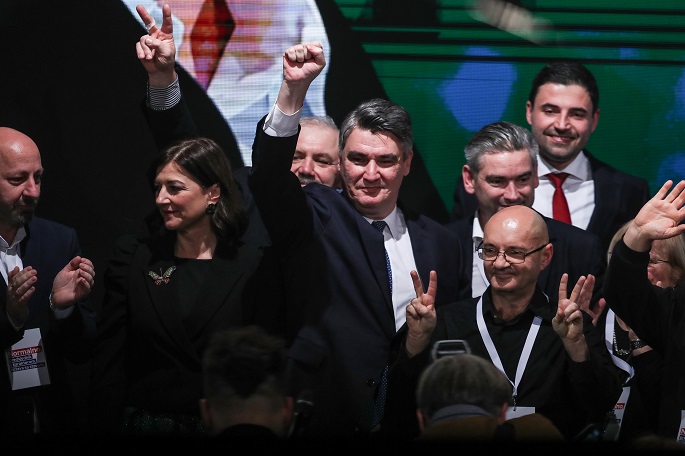Milanovic leading Croatia's presidential runoff
Published : 05 Jan 2020, 20:40
Updated : 05 Jan 2020, 22:57
Exit polls showed Croatia's former Prime Minister Zoran Milanovic is leading in the country's presidential runoff on Sunday, with 53.25 percent of the votes.
The incumbent President Kolinda Grabar-Kitarovic is behind him with 46.75 percent of the vote, exit polls made by market research company Ipsos Puls showed.
Croatian voters began to cast their ballots in the presidential election at 7 a.m. local time (0600 GMT) on Sunday. Over 3.8 million eligible voters, including some 40,000 overseas Croats, will choose their president for the next five years in the runoff between Grabar-Kitarovic and Milanovic.
A total of 11 candidates competed in the first round of the election on Dec. 22, 2019, when Milanovic won with nearly 30 percent of the votes (562,783), while Grabar-Kitarovic came second with almost 27 percent of the votes (507,628).
Croatia's president is elected by a majority vote. If none of the candidates obtains over 50 percent of the vote in the first round of voting, a second round will be held.
According to the State Electoral Commission, turnout reached 43.52 percent by 4:30 p.m. (1530 GMT) on Sunday, almost five percentage points higher than in the first round in December, but less than in the 2015 runoff when 48.23 percent of voters cast their ballot until mid-afternoon.
Grabar-Kitarovic is running for a second five-year term as the candidate of the ruling conservative party, the Croatian Democratic Union (HDZ), while Milanovic is the candidate of the largest center-left political party, the Social Democratic Party (SDP), and is backed by the liberal opposition.
Both Milanovic and Grabar-Kitarovic are former diplomats who started their careers at the Foreign Ministry.
The president's role in Croatia is largely ceremonial. He or she is formally the head of state and the commander-in-chief of the army. The president cooperates with the government in forming and implementing foreign policy but doesn't hold executive power.


